
-
Strong People Feel Deeply: Busting the Myth That Sensitivity Is a Flaw

Have you ever been told that you’re “too emotional” or “too sensitive”? In our culture, showing strong emotions is often seen as a flaw, something that makes you fragile or weak. Strength is usually defined by how much you can endure without breaking, how steady you can stay no matter what happens. But here’s the……
-
Why Are Some Harmful Drugs Still Legal?

It can feel confusing to think about how we treat different drugs in society. Substances like alcohol and tobacco are known to cause serious health problems, yet they are widely available and even celebrated in social settings. On the other hand, drugs like cannabis, LSD, or MDMA, many of which research suggests may be less……
-
Why Is It So Hard to Quit Smoking?

Quitting smoking is one of the most common goals people set and one of the hardest to achieve. Smoking is not just a habit. It’s a physical addiction and often a deeply ingrained part of one’s routine and identity. According to the World Health Organization (2021), tobacco use remains one of the leading causes of……
-
What Are Some Actually Helpful Ways to Manage Stress?
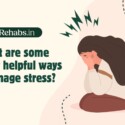
Stress is something all of us experience. It shows up before exams, deadlines at work, family conflicts, or even when life feels uncertain. A little stress can actually be helpful, it pushes us to stay alert, get things done, and sometimes perform at our best. But when stress becomes constant, it starts to harm both……
-
Is Your Body Stuck in Survival Mode?
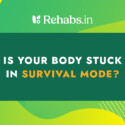
Ever feel like you’re running on autopilot? You get through the day, tick off your to-do list, but never feel truly rested. Maybe you find yourself snapping at small things, struggling to concentrate, or feeling oddly disconnected from the world around you. These might not seem like big problems but they could be subtle signs……
-
From Me to Mom: Coping with the Loss of Your Old Self After Having a Baby

Becoming a mother is often seen as one of the most fulfilling experiences in life. But what happens when you feel like you’ve lost your old self in the process? It’s a topic that’s rarely discussed, and often not openly shared, because society tends to expect mothers to embrace motherhood with complete joy, without hesitation….…
-
What Is Solution-Focused Brief Therapy and How Can It Help You?
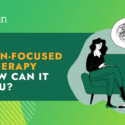
Therapy can take many forms. For some, it means exploring the past, understanding patterns, and healing old wounds. For others, it might look like learning skills to manage stress, anxiety, or relationships in the present. While many therapies dive deep into why a problem exists, SFBT focuses on what’s working and what’s next. It’s a……
-
Journaling with AI: How to Use ChatGPT as a Non-Judgmental Writing Companion

Journaling is one of the simplest and most powerful ways to understand yourself better. Whether you’re trying to process emotions, reflect on your day, or make sense of a difficult experience, putting thoughts into words can help create clarity and calm. Research has shown that expressive writing can lower stress, boost your mood, and even……
-
Body-Based Tools for Managing Addiction and Emotional Triggers
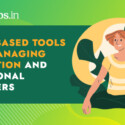
If you’ve ever felt a strong craving or emotional trigger out of nowhere, you’re not alone. These moments can feel really overwhelming like your body is taking over before your mind can even think. That’s because addiction and emotional triggers don’t just start in your thoughts. They often start in your body. Studies show that……
-
SFBT Techniques for When You Feel Stuck or Unmotivated
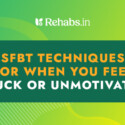
We all feel stuck sometimes. Whether it’s getting out of bed, starting a task, or just finding the energy to care, it can feel like we’re frozen in place. Motivation doesn’t always show up when we need it most. In those moments, it’s easy to focus on everything that’s not working. We often look at……